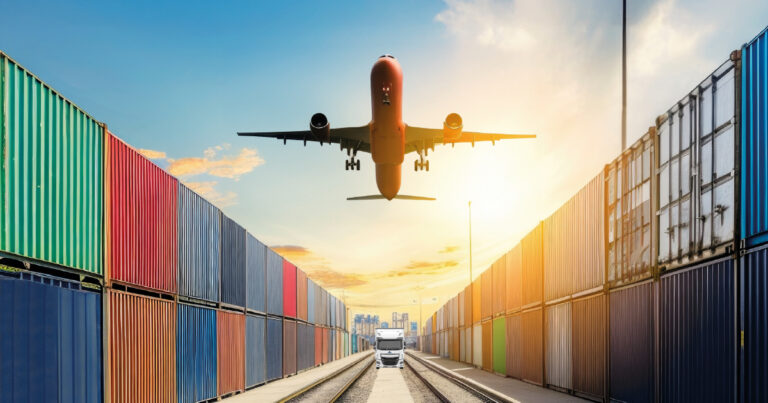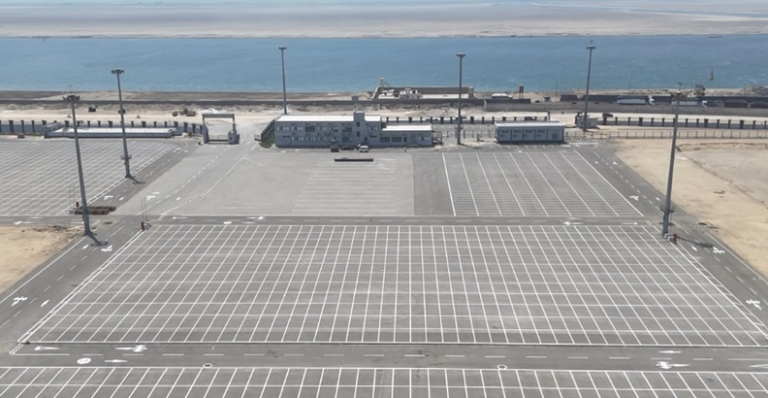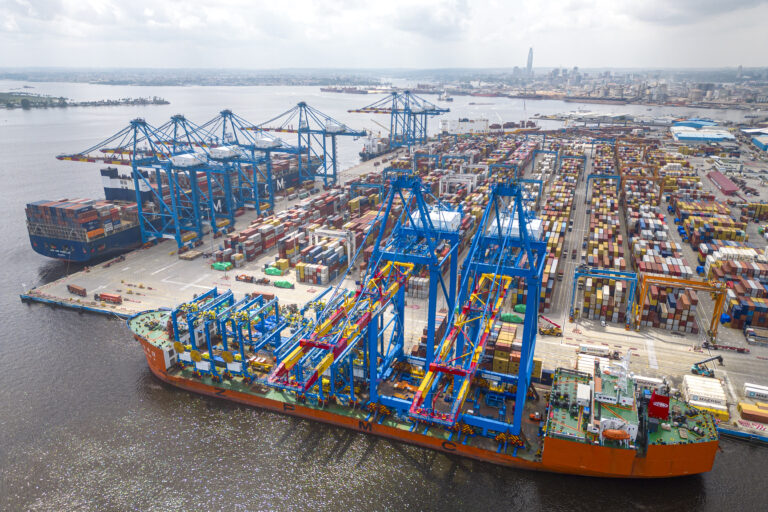Africa Market Trends: Navigating Growth Amid Global Trade Tensions
Africa’s freight market is experiencing unprecedented transformation, with robust growth across all transport modes while navigating complex geopolitical headwinds. The continent’s strategic position has made it a critical battleground for global trade influence, where transport corridors serve as instruments of both economic development and geopolitical maneuvering.
Q1 2025 delivered exceptional performance for the container shipping industry, with volumes surging 4.2% compared to the same period in 2024. Sub-Saharan Africa emerged as the best-performing import region, recording an impressive 8% increase year-over-year according to Container Trade Statistics. China to Africa Lane has experienced notable in recent years. Bilateral trade between China and African countries reached record highs in the first five months of 2025, increasing 12.4% year-on-year to US$134 billion dollars.
This growth has significantly increased the attractiveness of the African continent to shipping companies, leading to the launch of new services. Recently, new maritime services were introduced on routes connecting Asia to East and West Africa, with high-capacity vessels deployed to meet the growing demand demonstrating a long-term commitment to the expansion of African trade.

«However, shipping companies strategically use capacity management (allocation) - including blank sailings - to control supply-demand balance and maintain pressure on freight rates, thus explaining the general rate increases to West Africa, East Africa and Southern Africa» AGL HQ seafreight procurement
While container shipping volumes soar, Africa’s air cargo sector is demonstrating strong momentum. The continent recorded 4.7% year-on-year demand growth in April 2025, while capacity expanded 9.7%, aligning with global air cargo demand increases of 5.8%. The expansion is driven by the booming perishables sector encompassing fruits, vegetables, meat, and flowers. Kenya’s position as Africa’s largest vegetable exporter and the world’s third-largest flower exporter provides competitive advantages, enhanced by preferential trade agreements with the UAE, UK, and European countries.
E-commerce presents transformative potential. Despite representing 18% of the global population, Africa accounts for only 0.5% of global e-commerce revenues. Astral Aviation already handles 500 tons weekly of e-commerce volumes from China to South Africa. Boeing’s World Air Cargo Forecast predicts African air cargo volumes will double over the next 20 years and industry experts expect Africa to see an increase in trade airfreight volumes with China and India and a reduction in trade volumes with the US.
The success in ocean and air freight finds its complement in the continent’s evolving land-based infrastructure, where road and rail networks are experiencing parallel transformation driven by both regional integration efforts and competing geopolitical interests. The African Continental Free Trade Area (AfCFTA) has accelerated cross-border road freight development, with major corridors handling increasing volumes. Key arteries include the Northern Corridor connecting Mombasa-Kampala-Kigali and the Central Corridor linking Dar es Salaam-Kigali-Bujumbura. These strategic routes facilitate regional trade integration while reducing dependency on external markets.
Rail infrastructure investments have become particularly strategic, creating what industry experts term the “Great Railway Race” between global powers. “China’s Belt” and Road Initiative funds major projects including the Standard Gauge Railway in Kenya and railway expansions across Zambia, while simultaneously, the U.S. backs the Angola-Zambia-DRC rail corridor as part of the Lobito Corridor project. This infrastructure competition reflects broader geopolitical positioning, with both powers recognizing that control of transport networks translates directly to economic influence across the continent.
However, this remarkable growth trajectory across all transport modes faces significant headwinds as geopolitical tensions intensify around the continent’s strategic importance. Executive Order 14257 (April 2, 2025) introduced sweeping U.S. tariffs directly impacting 20 African countries, creating immediate challenges across key sectors. The textile industries in Lesotho and Madagascar face existential crises under 50% and 47% tariffs respectively.
The challenges extend beyond textiles into healthcare logistics, where the pharmaceutical trade faces additional uncertainty following the U.S. withdrawal from the World Health Organization (WHO), threatening vaccine and medical supply chains into Africa. The effective suspension of new USAID development projects compounds these concerns, as many cargo operations depend on agency-funded shipments. Yet these disruptions have catalyzed strategic responses that may ultimately strengthen Africa’s position in global trade networks.
In a landmark policy shift that directly counters U.S. trade restrictions, China has pledged to eliminate tariffs on 100% of imports from all African countries that maintain diplomatic relations with Beijing. This sweeping trade reform marks a significant expansion from earlier initiatives and affects all 53 African nations with formal ties to China. This represents part of Beijing’s wider strategy to strengthen China-Africa economic relations, especially as it navigates an enduring trade war with the United States.
These evolving dynamics demand new strategic approaches from freight market participants across all transport modes. Investment in perishables handling capabilities becomes essential, alongside e-commerce infrastructure preparation for smaller, frequent shipments from Asia. Strategic positioning at key African hubs offers competitive advantages in this rapidly changing landscape. The AfCFTA presents critical opportunities for developing regional value chains and reducing external dependencies, while countries like Egypt and Kenya, subject to universal 10% tariffs, could benefit from reduced Asian competition.
“It’s important to note that the US tariffs increase, has a relatively low impact considering Africa’s dependence on the U.S. However, trade agreements with Asian and European partners present viable alternatives to this new American trade strategy. Additionally, the strengthening intra-African trade relationships could expedite the establishment of the AfCFTA, fostering greater economic integration and resilience,” emphasized AGL Head of Customs.
The continent finds itself at a pivotal moment where current geopolitical tensions, while creating immediate challenges, also accelerate necessary diversification and regional integration efforts across all freight sectors. Although Africa accounts for only 2% of total U.S. trade, the continent’s growth potential and strategic resources create opportunities for more balanced and sustainable trade relationships.


